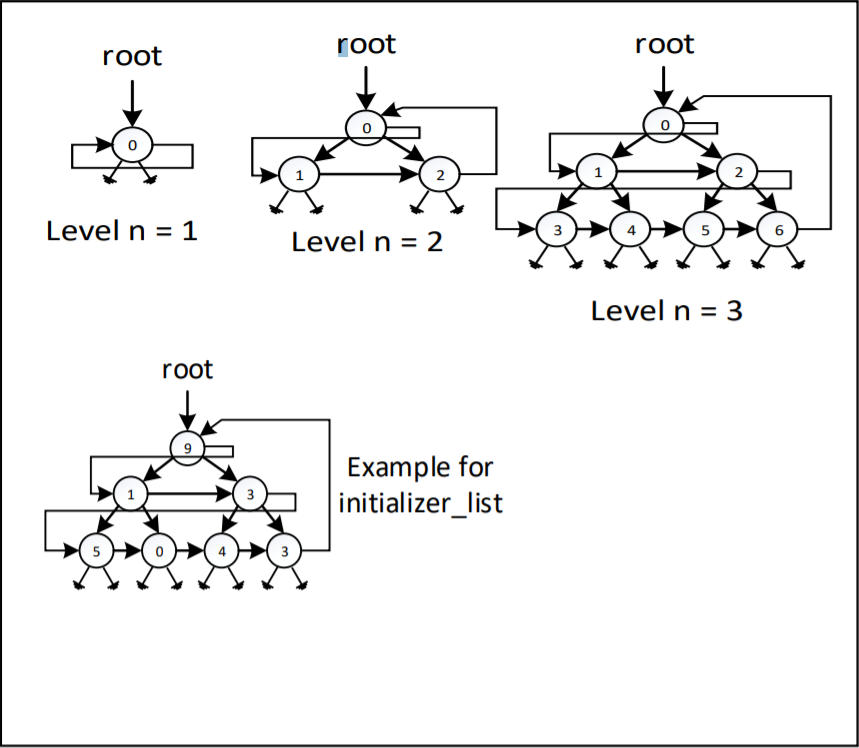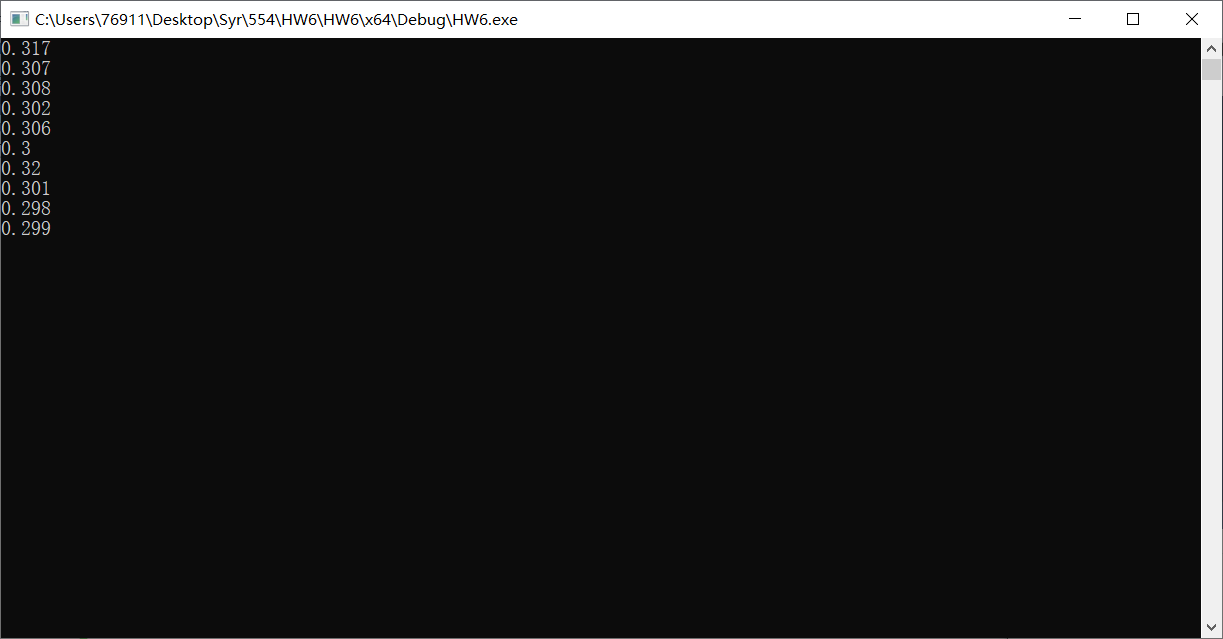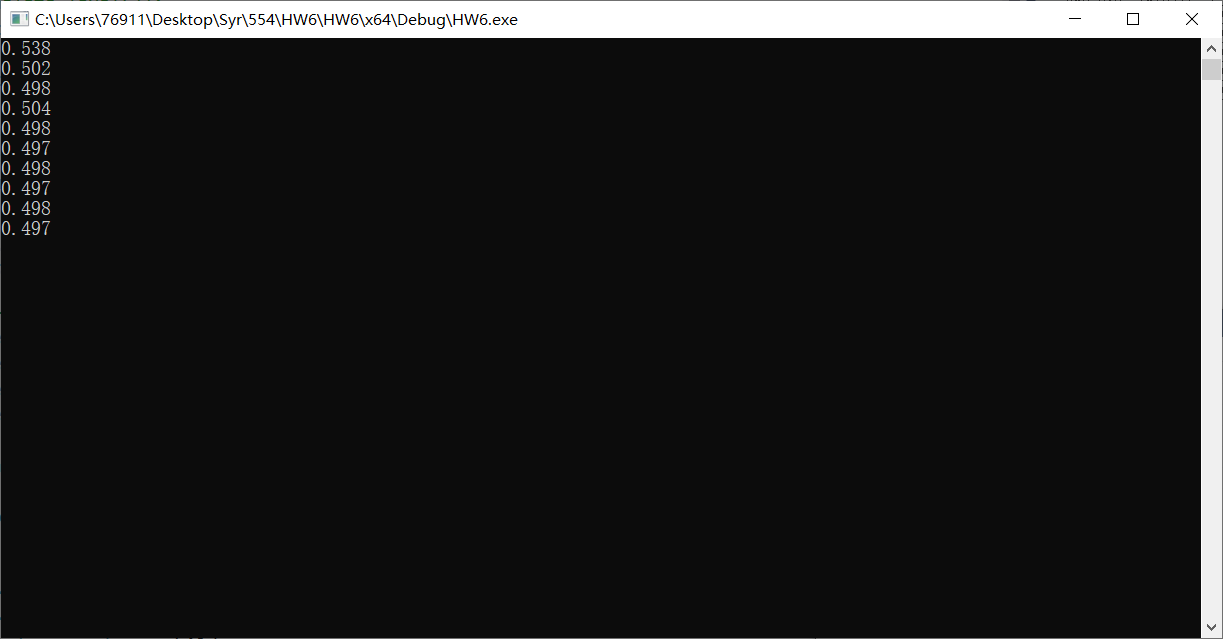One of our C++ class homework for practicing smart pointers. I implemented both smart pointer version and raw pointer version.
The basic problem is to write a binary tree data structure with "next" pointers.
For example,

Raw Pointer Version
1
2
3
4
5
6
7
8
9
10
11
12
13
14
15
16
17
18
19
20
21
22
23
24
25
26
27
28
29
30
31
32
33
34
35
36
37
38
39
40
41
42
43
44
45
46
47
48
49
50
51
52
53
54
55
56
57
58
59
60
61
62
63
64
65
66
67
68
69
70
71
72
73
74
75
76
77
78
79
80
81
82
83
84
85
86
87
88
89
90
91
92
93
94
95
96
97
98
99
100
101
102
103
104
105
106
107
108
109
110
111
112
113
114
115
116
117
118
119
120
121
122
123
124
125
126
127
128
129
130
131
132
133
134
135
136
137
138
139
140
141
142
143
144
145
146
147
148
149
150
151
152
153
154
155
156
157
158
159
160
161
162
163
164
165
166
167
168
169
170
171
172
173
174
175
176
177
178
179
180
181
182
183
184
185
186
187
188
189
190
191
192
193
194
195
196
197
198
199
200
201
202
203
204
205
206
207
208
209
210
211
212
213
214
215
216
217
218
219
220
221
222
223
224
225
226
227
228
229
230
231
232
233
234
235
236
237
238
239
240
241
242
243
244
245
246
247
248
249
250
251
252
253
254
255
256
257
258
259
260
261
262
263
264
265
266
267
268
269
270
271
272
273
274
275
276
277
278
279
280
281
282
283
#include <iostream>
#include <memory>
#include <math.h>
#include <queue>
using namespace std;
class node {
public:
int value;
shared_ptr<node> right;
shared_ptr<node> l_child;
shared_ptr<node> r_child;
node() {}
node(int i) { value = i; }
};
class tree {
public:
shared_ptr<node> root;
int level;
tree() { level = 0; }
//Implement all member functions below
tree(int n);//constructor for n-level tree
//and initilize values as shown in the diagram; 0, 1, 2, ...
//Note that root node is at level 1 and its value will be initialized to 0
tree(const tree &T);//copy constructor
~tree();//destructor
tree(tree &&T); //move constructor
tree(const initializer_list<int> &V);//The first number in V is tree level;
//the rest are values from top to bottom and from left to right
//For example, to create the tree with n=3 in the diagram,
//tree T1 = {3, 0,1,2,3,4,5,6}; //where the first 3 is tree level, and the rest are values
void operator= (const tree &R);//L-value operator=
void operator= (tree &&R); //R-value operator=
tree ThreeTimes(); //return a tree with all node value being three times
friend ostream & operator<<(ostream &str, const tree &T);
int sum(shared_ptr<node> p);//sum of node values in sub-tree rooted at p
void delete_level(int i); // Delete nodes at level i. Some nodes at level(s) higher
//than i will also be deleted accordingly. As described in class. (Also see the
//example in the main function.)
shared_ptr<node> find(int i); //find the first node with value i and return
//its address; if not found, return nullptr;
};
// In the homework, I use Level-Order Traversal to treverse the tree.
tree::tree(int n) : tree() {
level = n;
shared_ptr<node> prev = nullptr;
queue<shared_ptr<node>> que;
root = make_shared<node>(0);
que.push(root);
while (n--) {
int size = que.size();
while (size--) {
shared_ptr<node> cur = que.front();
if (prev)
prev->right = cur;
prev = cur;
if (n) {
que.push(cur->l_child = make_shared<node>(cur->value * 2 + 1));
que.push(cur->r_child = make_shared<node>(cur->value * 2 + 2));
}
que.pop();
}
}
prev->right = root;
}
tree::tree(const tree& that) : tree() {
level = that.level;
int n = level;
shared_ptr<node> prev = nullptr;
queue<shared_ptr<node>> que1;
queue<shared_ptr<node>> que2;
root = make_shared<node>(that.root->value);
que1.push(root);
que2.push(that.root);
while (n--) {
int size = que1.size();
while (size--) {
shared_ptr<node> cur1 = que1.front();
shared_ptr<node> cur2 = que2.front();
if (prev)
prev->right = cur1;
prev = cur1;
if (n) {
que1.push(cur1->l_child = make_shared<node>(cur2->l_child->value));
que1.push(cur1->r_child = make_shared<node>(cur2->r_child->value));
que2.push(cur2->l_child);
que2.push(cur2->r_child);
}
que1.pop();
que2.pop();
}
}
prev->right = root;
}
tree::tree(tree&& that) {
level = that.level;
that.level = 0;
root = that.root;
that.root = nullptr;
}
void tree::operator=(const tree& that) {
this->~tree();
level = that.level;
int n = level;
shared_ptr<node> prev = nullptr;
queue<shared_ptr<node>> que1;
queue<shared_ptr<node>> que2;
root = make_shared<node>(that.root->value);
que1.push(root);
que2.push(that.root);
while (n--) {
int size = que1.size();
while (size--) {
shared_ptr<node> cur1 = que1.front();
shared_ptr<node> cur2 = que2.front();
if (prev)
prev->right = cur1;
prev = cur1;
if (n) {
que1.push(cur1->l_child = make_shared<node>(cur2->l_child->value));
que1.push(cur1->r_child = make_shared<node>(cur2->r_child->value));
que2.push(cur2->l_child);
que2.push(cur2->r_child);
}
que1.pop();
que2.pop();
}
}
prev->right = root;
}
void tree::operator=(tree&& that) {
this->~tree();
level = that.level;
that.level = 0;
root = that.root;
that.root = nullptr;
}
tree::tree(const initializer_list<int>& V) : tree(*V.begin()) {
// Replace value with values in the initializer list
const int* p = V.begin();
shared_ptr<node> prev = root;
do {
prev->value = p[prev->value + 1];
prev = prev->right;
} while (prev != root);
}
tree tree::ThreeTimes() {
tree ret;
ret.level = level;
int n = level;
shared_ptr<node> prev = nullptr;
queue<shared_ptr<node>> que1;
queue<shared_ptr<node>> que2;
ret.root = make_shared<node>(root->value * 3);
que1.push(ret.root);
que2.push(root);
while (n--) {
int size = que1.size();
while (size--) {
shared_ptr<node> cur1 = que1.front();
shared_ptr<node> cur2 = que2.front();
if (prev)
prev->right = cur1;
prev = cur1;
if (n) {
que1.push(cur1->l_child = make_shared<node>(cur2->l_child->value * 3));
que1.push(cur1->r_child = make_shared<node>(cur2->r_child->value * 3));
que2.push(cur2->l_child);
que2.push(cur2->r_child);
}
que1.pop();
que2.pop();
}
}
prev->right = ret.root;
return ret;
}
tree::~tree() {
if (!root)
return;
shared_ptr<node> cur = root;
while (cur->right != root)
cur = cur->right;
cur->right.reset();
}
ostream& operator<<(ostream& os, const tree &obj) {
shared_ptr<node> cur = obj.root;
do {
os << cur->value << ' ';
cur = cur->right;
} while (cur != obj.root);
return os;
}
int tree::sum(shared_ptr<node> p) {
int result = 0;
queue<shared_ptr<node>> que;
que.push(p);
while (!que.empty()) {
shared_ptr<node> cur = que.front();
if (cur->l_child)
que.push(cur->l_child);
if (cur->r_child)
que.push(cur->r_child);
result += cur->value;
que.pop();
}
return result;
}
void tree::delete_level(int i) {
queue<shared_ptr<node>> que;
que.push(root);
int levelCount = 0;
while (!que.empty()) {
int size = que.size();
++levelCount;
while (size--) {
shared_ptr<node> cur = que.front();
if (levelCount == i - 1) {
shared_ptr<node> l = cur->l_child;
cur->l_child = l->l_child;
l.reset();
shared_ptr<node> r = cur->r_child;
cur->r_child = r->l_child;
r.reset();
}
else {
if (cur->l_child)
que.push(cur->l_child);
if (cur->r_child)
que.push(cur->r_child);
}
que.pop();
}
}
shared_ptr<node> prev = nullptr;
que.push(root);
while (!que.empty()) {
int size = que.size();
while (size--) {
shared_ptr<node> cur = que.front();
if (prev)
prev->right = cur;
prev = cur;
if (cur->l_child)
que.push(cur->l_child);
if (cur->r_child)
que.push(cur->r_child);
que.pop();
}
}
prev->right = root;
}
shared_ptr<node> tree::find(int i) {
shared_ptr<node> cur = root;
while (cur->right != root)
if (cur->value == i)
return cur;
else
cur = cur->right;
return cur->value == i ? cur : nullptr;
}
Smart Pointer Version
1
2
3
4
5
6
7
8
9
10
11
12
13
14
15
16
17
18
19
20
21
22
23
24
25
26
27
28
29
30
31
32
33
34
35
36
37
38
39
40
41
42
43
44
45
46
47
48
49
50
51
52
53
54
55
56
57
58
59
60
61
62
63
64
65
66
67
68
69
70
71
72
73
74
75
76
77
78
79
80
81
82
83
84
85
86
87
88
89
90
91
92
93
94
95
96
97
98
99
100
101
102
103
104
105
106
107
108
109
110
111
112
113
114
115
116
117
118
119
120
121
122
123
124
125
126
127
128
129
130
131
132
133
134
135
136
137
138
139
140
141
142
143
144
145
146
147
148
149
150
151
152
153
154
155
156
157
158
159
160
161
162
163
164
165
166
167
168
169
170
171
172
173
174
175
176
177
178
179
180
181
182
183
184
185
186
187
188
189
190
191
192
193
194
195
196
197
198
199
200
201
202
203
204
205
206
207
208
209
210
211
212
213
214
215
216
217
218
219
220
221
222
223
224
225
226
227
228
229
230
231
232
233
234
235
236
237
238
239
240
241
242
243
244
245
246
247
248
249
250
251
252
253
254
255
256
257
258
259
260
261
262
263
264
265
266
267
268
269
270
271
272
273
274
275
276
277
278
279
280
281
282
283
284
285
286
287
288
289
290
291
292
293
294
295
296
297
298
299
300
#include <iostream>
#include <memory>
#include <math.h>
#include <queue>
using namespace std;
class node {
public:
int value;
node* right;
node* l_child;
node* r_child;
node() { right = l_child = r_child = nullptr; }
node(int i) { right = l_child = r_child = nullptr; value = i; }
};
class tree {
public:
node* root;
int level;
tree() { root = nullptr; level = 0; }
//Implement all member functions below
tree(int n);//constructor for n-level tree
//and initilize values as shown in the diagram; 0, 1, 2, ...
//Note that root node is at level 1 and its value will be initialized to 0
tree(const tree &T);//copy constructor
~tree();//destructor
tree(tree &&T); //move constructor
tree(const initializer_list<int> &V);//The first number in V is tree level;
//the rest are values from top to bottom and from left to right
//For example, to create the tree with n=3 in the diagram,
//tree T1 = {3, 0,1,2,3,4,5,6}; //where the first 3 is tree level, and the rest are values
void operator= (const tree &R);//L-value operator=
void operator= (tree &&R); //R-value operator=
tree ThreeTimes(); //return a tree with all node value being three times
friend ostream & operator<<(ostream &str, const tree &T);
int sum(node* p);//sum of node values in sub-tree rooted at p
void delete_level(int i); // Delete nodes at level i. Some nodes at level(s) higher
//than i will also be deleted accordingly. As described in class. (Also see the
//example in the main function.)
node* find(int i); //find the first node with value i and return
//its address; if not found, return nullptr;
void recursiveDelete(node* p);
};
// In the homework, I use Level-Order Traversal to treverse the tree.
tree::tree(int n) : tree() {
level = n;
node* prev = nullptr;
queue<node*> que;
root = new node(0);
que.push(root);
while (n--) {
int size = que.size();
while (size--) {
node* cur = que.front();
if (prev)
prev->right = cur;
prev = cur;
if (n) {
que.push(cur->l_child = new node(cur->value * 2 + 1));
que.push(cur->r_child = new node(cur->value * 2 + 2));
}
que.pop();
}
}
prev->right = root;
}
tree::tree(const tree& that) : tree() {
level = that.level;
int n = level;
node* prev = nullptr;
queue<node*> que1;
queue<node*> que2;
root = new node(that.root->value);
que1.push(root);
que2.push(that.root);
while (n--) {
int size = que1.size();
while (size--) {
node* cur1 = que1.front();
node* cur2 = que2.front();
if (prev)
prev->right = cur1;
prev = cur1;
if (n) {
que1.push(cur1->l_child = new node(cur2->l_child->value));
que1.push(cur1->r_child = new node(cur2->r_child->value));
que2.push(cur2->l_child);
que2.push(cur2->r_child);
}
que1.pop();
que2.pop();
}
}
prev->right = root;
}
tree::tree(tree&& that) {
level = that.level;
that.level = 0;
root = that.root;
that.root = nullptr;
}
void tree::operator=(const tree& that) {
this->~tree();
level = that.level;
int n = level;
node* prev = nullptr;
queue<node*> que1;
queue<node*> que2;
root = new node(that.root->value);
que1.push(root);
que2.push(that.root);
while (n--) {
int size = que1.size();
while (size--) {
node* cur1 = que1.front();
node* cur2 = que2.front();
if (prev)
prev->right = cur1;
prev = cur1;
if (n) {
que1.push(cur1->l_child = new node(cur2->l_child->value));
que1.push(cur1->r_child = new node(cur2->r_child->value));
que2.push(cur2->l_child);
que2.push(cur2->r_child);
}
que1.pop();
que2.pop();
}
}
prev->right = root;
}
void tree::operator=(tree&& that) {
this->~tree();
level = that.level;
that.level = 0;
root = that.root;
that.root = nullptr;
}
tree::tree(const initializer_list<int>& V) : tree(*V.begin()) {
// Replace value with values in the initializer list
const int* p = V.begin();
node* prev = root;
do {
prev->value = p[prev->value + 1];
prev = prev->right;
} while (prev != root);
}
tree tree::ThreeTimes() {
tree ret;
ret.level = level;
int n = level;
node* prev = nullptr;
queue<node*> que1;
queue<node*> que2;
ret.root = new node(root->value * 3);
que1.push(ret.root);
que2.push(root);
while (n--) {
int size = que1.size();
while (size--) {
node* cur1 = que1.front();
node* cur2 = que2.front();
if (prev)
prev->right = cur1;
prev = cur1;
if (n) {
que1.push(cur1->l_child = new node(cur2->l_child->value * 3));
que1.push(cur1->r_child = new node(cur2->r_child->value * 3));
que2.push(cur2->l_child);
que2.push(cur2->r_child);
}
que1.pop();
que2.pop();
}
}
prev->right = ret.root;
return ret;
}
tree::~tree() {
if (!root)
return;
node* prev = nullptr;
node* cur = root;
do {
prev = cur;
cur = cur->right;
delete(prev);
} while (cur != root);
}
ostream& operator<<(ostream& os, const tree &obj) {
node* cur = obj.root;
do {
os << cur->value << ' ';
cur = cur->right;
} while (cur != obj.root);
return os;
}
int tree::sum(node* p) {
int result = 0;
queue<node*> que;
que.push(p);
while (!que.empty()) {
node* cur = que.front();
if (cur->l_child)
que.push(cur->l_child);
if (cur->r_child)
que.push(cur->r_child);
result += cur->value;
que.pop();
}
return result;
}
void tree::recursiveDelete(node* p) {
if (p->l_child)
recursiveDelete(p->l_child);
if (p->r_child)
recursiveDelete(p->r_child);
delete(p);
}
void tree::delete_level(int i) {
queue<node*> que;
que.push(root);
int levelCount = 0;
while (!que.empty()) {
int size = que.size();
++levelCount;
while (size--) {
node* cur = que.front();
if (levelCount == i - 1) {
node* l = cur->l_child;
cur->l_child = l->l_child;
if (l->r_child)
recursiveDelete(l->r_child);
delete(l);
node* r = cur->r_child;
cur->r_child = r->l_child;
if (r->r_child)
recursiveDelete(r->r_child);
delete(r);
}
else {
if (cur->l_child)
que.push(cur->l_child);
if (cur->r_child)
que.push(cur->r_child);
}
que.pop();
}
}
node* prev = nullptr;
que.push(root);
while (!que.empty()) {
int size = que.size();
while (size--) {
node* cur = que.front();
if (prev)
prev->right = cur;
prev = cur;
if (cur->l_child)
que.push(cur->l_child);
if (cur->r_child)
que.push(cur->r_child);
que.pop();
}
}
prev->right = root;
}
node* tree::find(int i) {
node* cur = root;
while (cur->right != root)
if (cur->value == i)
return cur;
else
cur = cur->right;
return cur->value == i ? cur : nullptr;
}
Test Code
1
2
3
4
5
6
7
8
9
10
11
12
13
14
15
16
17
18
19
20
21
22
23
24
25
#include <ctime>
int main() {
int m = 10;
while (m--) {
int n = 10000;
clock_t begin, end;
begin = clock();
while (n--) {
tree T1(3);
tree T2 = { 4, 10, 11, 12, 13, 14, 15, 16, 17, 18, 19, 20, 21, 22, 23, 24 };
tree T3(T2);
tree T4;
T4 = T3;
T4 = T3.ThreeTimes();
T4.delete_level(3);
T3.sum(T3.find(12));
}
end = clock();
cout << (end - begin) / 1000.0 << endl;
}
getchar();
getchar();
return 0;
}
Benchmark, with 1000 loop and 10 tests.
Raw Pointer Version
Time / Second

Smart Pointer Version
Time / Second
